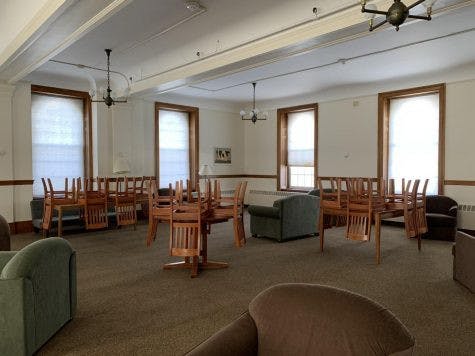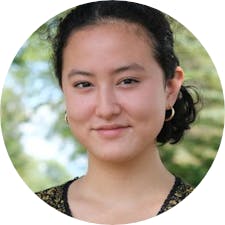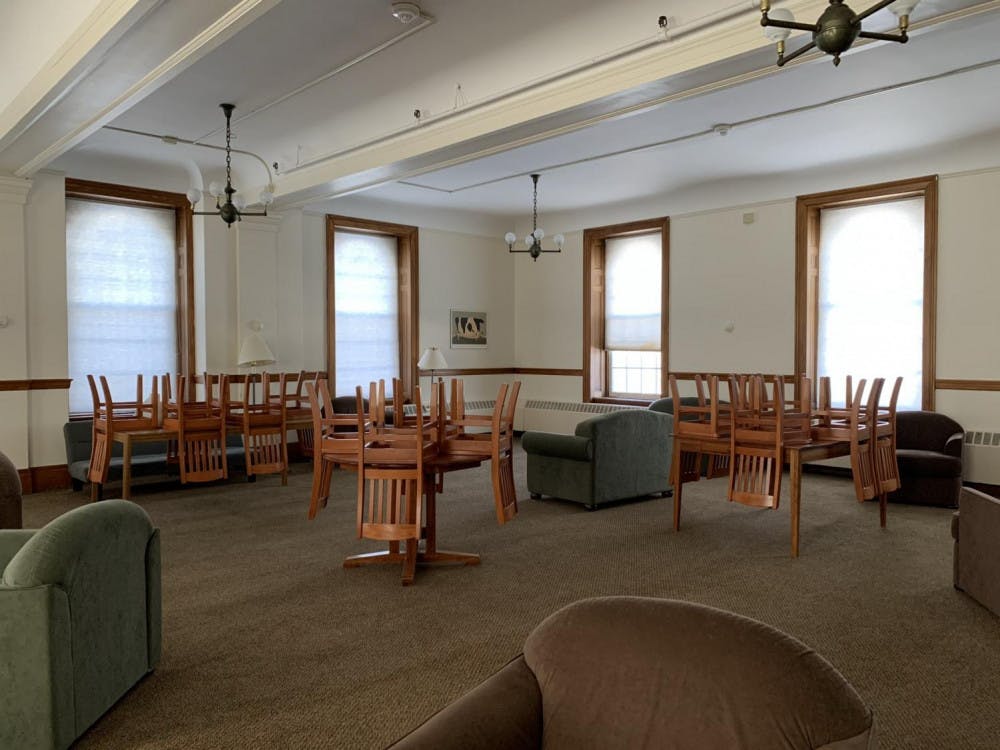With J-Term classes fully remote, nearly all on-campus students departed for winter break in November, many planning to return in February for the start of spring semester. But the pandemic made travel and lodging options few and far between for some students, while others needed on-campus resources to complete research and thesis work.
Twenty-three students remained on campus for the end of fall semester and winter break, and another 34 were scheduled to arrive for J-Term, according to a Dec. 16 announcement. As of this week, only 46 students are living on campus, according to Associate Dean of Student Life AJ Place.
Pre-pandemic J-Terms promised a reprieve from traditional classwork, an increase in social time and a plethora of opportunities to enjoy the outdoors. But even for those who are in the typical Vermont setting, the term is far from the activity-filled month of years past. Many students are currently the sole resident of their campus housing.
“It feels like there is no one here. It feels like a ghost town,” said Jack Friedman ’21, an architectural studies major. He is living on campus to work on his thesis, for which he needs access to an architectural studio.
As in the fall, students who came to campus for J-Term undertook a 14-day pre-arrival quarantine and Day Zero and Day Seven testing. A Jan. 8 email from Dean of Students Derek Doucet also noted that students would not be allowed to return unless they had received a flu vaccine.
According to Friedman, on-campus public health protocol has remained the same as the previous semester — at least for the students who arrived in January. Students must wear masks, maintain physical distance and undergo periodic testing through the college’s targeted dynamic testing program.
Friedman said dining is much like the fall, with some key changes. Only Ross dining hall is providing meals throughout the term, and there are no public dining spaces for students to eat together. The more limited hours — with only one hour of open time for each meal — have proved a particular issue for him.
“I actually missed the meals, specifically dinner, a number of times,” Friedman said. “Only opening one dining hall for an hour, especially when there wasn't anywhere else on campus to get food, was really brutal for a while.”
Though most buildings are closed, Davis Family Library is open for students to study and check out books. The mail center, Midd Xpress and the athletic center are also operating during J-Term.
Students also have access to individual buildings if they need the facilities to complete research or thesis work. Tahira Hasan ’21, a neuroscience major, was one of 29 students who returned to campus to conduct in-person research this winter.
“It’s just something I’ve been wanting to do for a while, and I’m really glad I had the opportunity to do it [in person] instead of doing it over Zoom or something or online,” she said.
Hasan said she rarely sees other students around campus, and she does not think any other students are currently living in the townhouses.
Those who stayed through winter break, like Paolo Gonnelli ’21, experienced a campus with even fewer students and open facilities. Gonnelli, who normally lives in the Spanish House, relocated to Porter House when the college consolidated students to that residence and to Forest Hall over winter break. The college cited safety, staff bandwidth and access to kitchens as the primary reason for the move, according to Gonnelli.

The libraries closed after most students left campus in November. Dan Detora, executive director of food service operations, said that the college stopped serving meals in dining halls and the Grille on Dec. 18, but they stocked the kitchens in Forest and Porter with food.
Students were released from campus quarantine over the break, which Gonnelli believes was largely to give them access to more food options. As is the case during typical college breaks, some students on financial aid received grocery store gift cards, according to Place.
Though the college had initially told those on campus they would return to and remain in campus quarantine once the new group of students arrived in January, according to Gonnelli, the school later revised this position in a Jan. 29 email from Doucet.
The Dean of Students noted that students could travel into town for essentials until Feb. 6, though they were asked not to visit off-campus students or other community members and to keep these trips brief.
“I regret that any travel outside of the town of Middlebury remains prohibited without prior approval from a dean,” Doucet wrote. “We anticipate that we will return to full campus quarantine on February 7 in preparation for the return of students for the spring term.”
Friedman attributes this policy change in part to students’ need to buy materials for their theses. He said that while the school provides material to the students in his thesis class, they often need to source additional items themselves.
Though he noted how isolating it was to stay on the nearly empty campus with most facilities shuttered, Friedman expressed gratitude for being able to live at Middlebury this winter.
“Trying to work on a thesis from home is not something which I would ever want to do,” he said. “It definitely feels like a privilege that I'm able to actually work on it in person and see people and collaborate to whatever extent that we're allowed to.”

Abigail Chang ’23 (she/her) is the Editor in Chief.
She previously served as a managing editor, Senior News Editor, News Editor and co-host of The Campus' weekly news radio show.
Chang is majoring in English and minoring in linguistics. She is a member of the Media Portrayals of Minorities Project, a Middlebury lab that uses computer-assisted and human coding techniques to analyze bulk newspaper data.
Throughout last year, Chang worked on source diversity and content audits for different media properties as an intern for Impact Architects LLC. Chang spent summer 2021 in Vermont, working as a general assignment reporter for statewide digital newspaper VTDigger. Chang is also a member of the Middlebury Paradiddles, an a cappella group.




